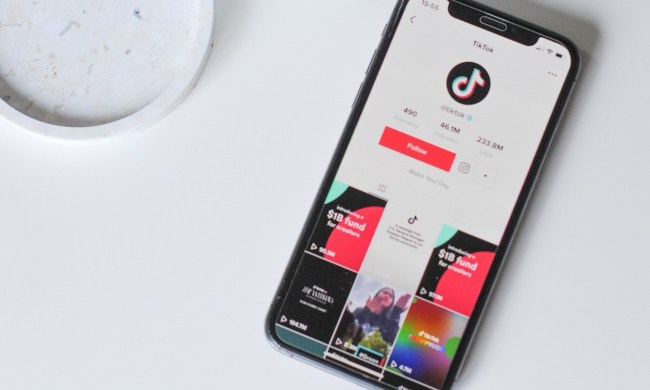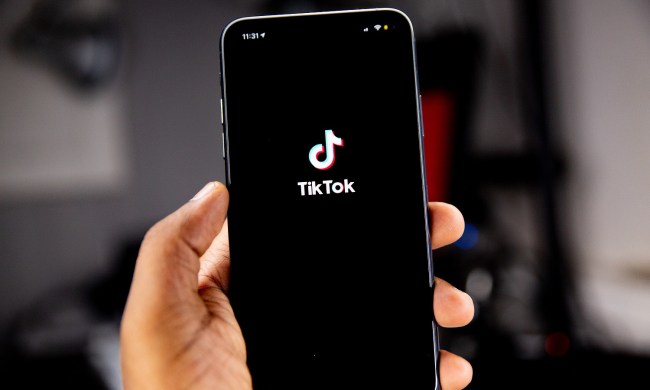TikTok on Monday filed a lawsuit to counter President Donald Trump’s executive order that would ban the app from conducting business in the U.S.
In a statement on its website, TikTok said the administration’s ban had the potential to “strip the rights” of the employees and creators on the Tik Tok platform “without any evidence to justify such an extreme action.”
The statement also reiterated TikTok’s claim that it is not a national security threat and that the executive order Trump issued ignored the due process usually taken to look into these allegations.
The president had been threatening to ban TikTok for months, citing national security concerns over the fact that TikTok is owned by a Chinese company, ByteDance. Under the executive order, ByteDance will be forced to sell the U.S. arm of its TikTok operations by September 15. Microsoft has emerged as a contender, and Twitter recently emerged as a dark horse candidate, but unless a U.S. company purchases it by that deadline, the app will be effectively killed.
After the administration announced the executive order on August 7, TikTok issued a statement saying that there was no “due process” and that it has “sought to engage with the U.S. government in good faith.”
TikTok also accused the administration of relying on bad information and “unnamed reports” alleging the app would be “used to spread misinformation.” Many fears swirled around whether TikTok was giving private data about U.S. users to the Chinese government — fears that have not been substantiated, but still remain. The administration has cited these concerns as a key reason for the ban. At least one branch of the U.S. government and one private bank have forbidden their employees from installing the app on their phones.
TikTok and ByteDance did not respond to a request for a comment on the lawsuit, but in previous statements to Digital Trends, TikTok spokespeople have emphasized the company’s ties to the U.S. TikTok has an American CEO and chief information security officer, and its servers are based in Virginia, with a backup in Singapore. According to CNN, the app functions as a U.S. subsidiary of ByteDance, and isn’t even available in China; the Chinese app equivalent is called Douyin.
“We have no higher priority than promoting a safe and secure app experience for our users,” a spokesperson said. “We have never provided user data to the Chinese government, nor would we do so if asked.” TikTok also claims that it collects “less” user information than other social media companies, something that experts have previously disputed.
A spokesperson for ByteDance, TikTok’s current parent company, said the company would weather this storm and be there for its users no matter what, telling Digital Trends that the company was “build[ing] TikTok for the long term. TikTok will be here for many years to come.”
In a letter to employees that was leaked to the media, ByteDance CEO Zhang Yimin explained that the Committee on Foreign Investment in the United States had deemed ByteDance’s 2017 acquisition of musical.ly, the app that became TikTok, as “inappropriate,” and that the company would be forced to sell.
There are now two parallel paths laid out before the company: One is this lawsuit, which, if successful, could possibly reinstate the app for a while. The second is being bought up by a U.S. company, which might be the smoother route.
When it comes to declaring what is and what isn’t concerning for national security, the only power in the U.S. government that can check the president is Congress, said Lindsay Gorman, an emerging technologies fellow at the Alliance for Securing Democracy, an initiative of the German Marshall Fund. And given the national security concerns swirling around the app, it doesn’t seem likely to happen.
“Right now, I don’t see an appetite in congress to challenge the executive order,” said Gorman.
There is also precedent for these kinds of sales: Gorman pointed to the dating app Grindr. Its previous Chinese owner, Beijing Kunlun Tech Co Ltd, sold it in March 2020 for more than $600 million to the U.S. company San Vicente Acquisition, according to Out Magazine, after the U.S. government raised similar national security concerns.
There remain some very real concerns about TikTok, Gorman said. “Our concerns about TikTok have not changed. If anything, new evidence suggests that TikTok has duplicitously skirted data privacy safeguards put in place by Google and Apple,” she told Digital Trends. “But TikTok likely will not be the only Chinese-made app to become popular in the United States … a multilateral set of principles for how to think about the standards for the role of information apps in our democracy is urgently needed.”
For years, Gorman said, U.S. apps have been met with blocks and censorship when they try to enter China. Now, above all, the lawsuit is an illustration of the deepening digital fault lines between U.S. and Chinese tech companies. “The U.S. is now reckoning with whether Chinese companies will have a future in the U.S.,” said Gorman. “That’s what this lawsuit will be meting out if it gains any traction.”
TikTok is already banned in at least two places: Hong Kong and India.



